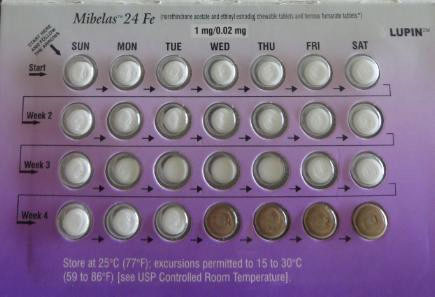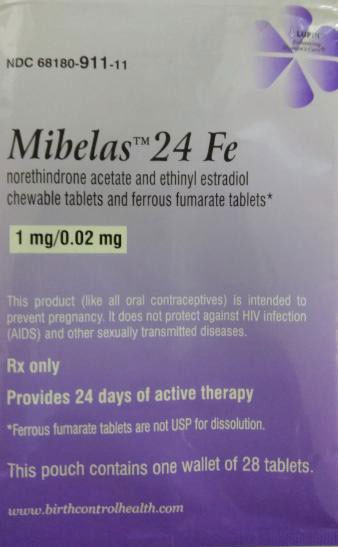
The FDA has issued a warning to women who are taking the birth control pill Mibelas 24 Fe, produced by Lupin Pharmaceuticals. It turns out the company mislabeled the sequence of pills and an unwanted pregnancy could result.
Mibelas 24 Fe is a chewable contraceptive pill that is packaged as 24 active hormone pills of estradiol, a form of estrogen that helps prevent ovulation, and four placebo pills to be taken at the end of a 28-day cycle.
Although the estradiol pills are different colors from the placebos, white for the estradiol and brown for the placebo, the FDA says there is a risk of becoming confused because of the mislabeling. The FDA recall notification states in part:
“As a result of this packaging error, oral contraceptive tablets that are taken out of sequence may place the user at risk for contraceptive failure and unintended pregnancy. The reversing the order may not be apparent to either new users or previous users of the product, increasing the likelihood of taking the tablets out of order. For patients in whom a pregnancy is contraindicated or in whom concomitant medication(s) may have teratogenic effects, an unintended pregnancy may cause significant adverse maternal or fetal health consequences, including death. To date, there have been no reports of such adverse events.”
People using the product should check if the medication has either the lot number “L600518” and or an expiration date of May 2018. There could be a blurry or blank listing for both. Lupin Pharmaceuticals has voluntarily recalled the contraceptive, which was distributed nationwide.

According to the CDC, when it comes to methods of birth control in the United States:
-
The percentage of women ages 15-44 currently using the pill: 16.0 percent
-
The percentage of women ages 15-44 currently using long-acting reversible contraception (Intrauterine device or contraceptive implant) 7.2 percent
-
The percentage of women ages 15-44 currently using female sterilization: 15.5 percent
-
The percentage of women ages 15-44 currently using male sterilization: 5.1 percent















